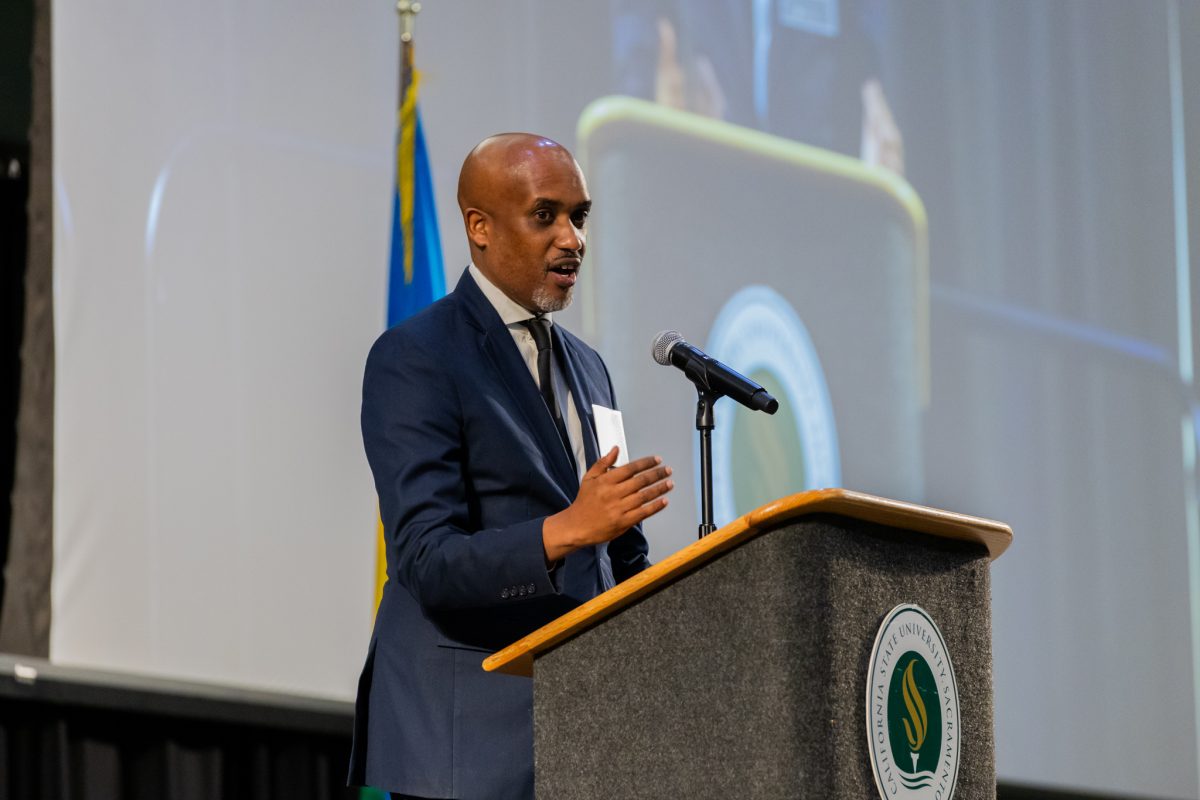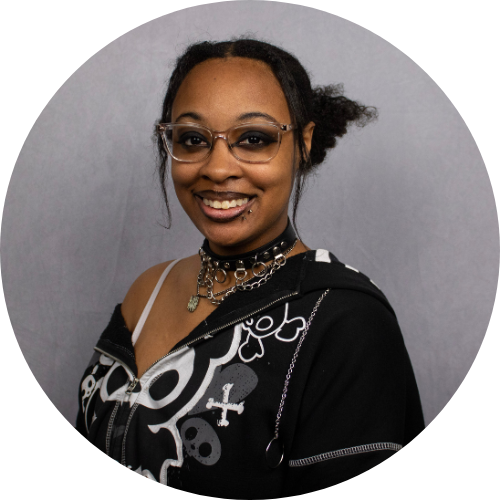Sacramento State hosted the first day of the sixth annual International Conference on Genocide in the University Union ballroom on Thursday from 8:00 a.m. to 5:45 p.m.
The ceremony started with blessings from Elder and Chairwoman Emerita Mary Tarango, as well as a land acknowledgement by Senior Advisor and Chief Strategist to President Luke Wood Mark Wheeler. The ceremony included pre-recorded opening remarks from Wood.
The opening ceremony concluded with a speech from Rwanda’s Minister of Justice and Attorney General Emmanuel Ugirashebuja, who explained the history behind the Genocide against the Tutsi, and the “stages of genocide”. He categorized them as classification, symbolization, dehumanization, organization, polarization, preparation, extermination and denial. He ended off the ceremony by thanking attendees for their commitment to the cause.
“This conference has provided an invaluable platform for scholars, activists, policy makers from around the world to come together and discuss the most pressing and complex issues related to the study of Genocide,” Ugirashebuja said.
The first day of the conference consisted of seven different panels. These included Gendering Narratives in Genocide, Reclaiming Objects & Sites of History, Contemporary Legacies of Genocide, The Rohingya Crisis, Children in/of Genocide and more. Guest speakers came from around the world, some in person and some virtually.
RELATED: Post-election reflection held at the Multicultural Center
Panelist and criminal justice professor Nicole Fox said the conference not only discussed past genocides, but interventions of current ones and how to prevent more from happening in the future.
“You often don’t know that something is a genocide until very late, because what distinguishes a genocide is the intent to kill in whole or in part,” Fox said. “So it’s important to intervene early on.”
Fox said that there are specific warning signs to look out for when it comes to preventing a potential genocide, such as high civilian death rates and if those victims come from similar ethnic or religious backgrounds.
Both Fox and Assistant sociology professor Brandon Moore spoke at a panel about gender and sex-based violence in relation to genocide. Moore said that the conversation on sex-based violence against men is very new, as the topic is typically centered on women.
“In the last 10-20 years, there’s been more of a shift to focusing on male experiences, but it’s really hard to capture,” Moore said, adding that the discussion of sexual violence towards men differs in foreign countries compared to the United States. “It challenges so many notions of gender that exist broadly in society, especially in the different cultural contexts.”
The first day wrapped up with a plenary panel on California Indian voices, experiences and history. Panelist speaker and Deputy Director General of the Imbuto Foundation in Rwanda Geraldine Umutesi spoke openly about her experiences surviving the genocide against the Tutsi at the age of 17.
Umutesi said she remembered being taken to a camp with her sister and being surrounded by soldiers and police officers.
“When my sister saw them coming to me, she pushed me, then shielded me and held me in her arms,” Umutesi said. “Then they slaughtered her until the last minute of her life.”
Umutesi could recall the experience clearly, but said that despite the trauma she went through, it taught her how to be strong and gave her the final push to help other victims of genocide, create organizations and other resources to spread the word.
“I always feel the flow of her breath on my back,” Umutesi said. “But when I think about her courage, I think that moment helped me understand that I have to live, I have to be very strong, and I have to hold in my arms other genocide survivors.”
Students from Sac State said that a conference like this was a good opportunity, and that the bad parts of history should be talked about just as much as the good. Junior criminal justice major Nadine Oakley said she is hopeful that through the conference, she will learn parts of history that she may not have the opportunity to learn in her classes.
“How do you become knowledgeable about things that are atrocious, like genocide, all around the world if you don’t come to things like this?” Oakley said. “I think it’s important to not just do our classes and the bare minimum, but to get the whole encompassing of school life.”
The conference will last through Saturday, starting up again in the Union Cottonwood suites on Friday at 8 a.m.
Additional reporting by Emilie Jocson and Jocelyn Hill.

































































































































